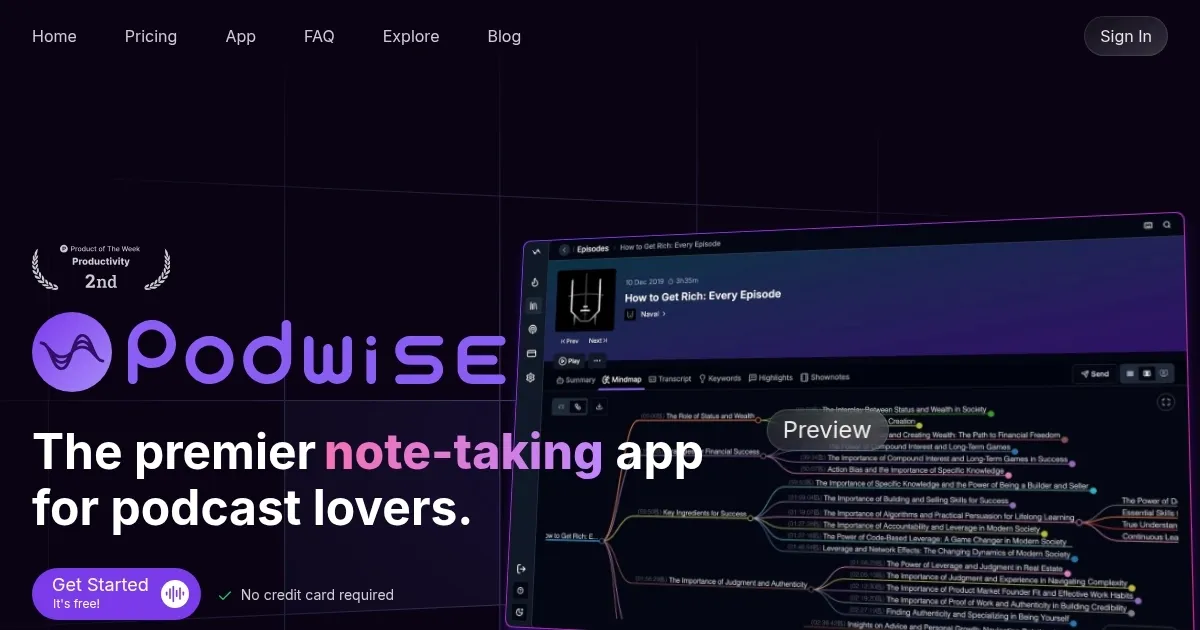Podwise
Podwise is a clever little tool that’s quietly changing how we tackle the overwhelming world of podcasts. With over two million shows out there, finding time to sift through hours of audio for key insights feels like chasing a runaway train. Podwise steps in with a promise to make sense of it all, using AI to break down episodes into bite-sized, structured knowledge. It’s like having a super-smart assistant who listens to your favorite podcasts and hands you the highlights on a silver platter. I think it’s a game-changer for anyone who loves learning but dreads the time sink.
The magic starts with Podwise’s AI-driven summarization. It condenses episodes into concise overviews, often in just a minute or two, so you can decide if an episode’s worth your time. The mind map feature is a standout, visually organizing topics and subtopics into a clear, clickable structure. You can jump straight to the parts that spark your interest, no fast-forwarding required. Transcriptions are another gem, accurate enough to let you search for specific keywords or revisit exact moments. Integration with tools like Notion, Obsidian, and Readwise makes it easy to slot podcast insights into your existing workflow, turning fleeting audio into lasting notes.
But it’s not all smooth sailing. Some users note that timestamp precision could use a tweak — clicking a transcript line might land you at the start of a paragraph instead of the exact sentence. This can be a minor annoyance when you’re trying to pinpoint a specific quote. Compared to competitors like Eightify or Castmagic, which also summarize audio content, Podwise shines with its visual mind maps and deep knowledge management integrations. Eightify leans more toward quick video summaries, while Castmagic focuses on podcast production tools, making Podwise a unique fit for listeners who prioritize learning over creating.
What might surprise you is how Podwise feels like a personal librarian for your podcast obsession. The ability to export a mind map to Notion or pull up a 3-minute outline feels almost indulgent, like someone’s done your homework for you. It’s particularly handy for dense, hours-long episodes — think tech deep-dives or history podcasts — where wading through fluff to find gold is a chore. The mobile-first design means you can browse summaries or transcripts on the go, which is perfect for commuters or gym-goers who want to learn without headphones.
Still, Podwise isn’t perfect. The free plan limits you to a handful of AI-processed episodes per month, which might feel restrictive if you’re a podcast fiend. Paid plans unlock unlimited access, but you’ll need to weigh whether the cost fits your budget compared to similar tools. I’d recommend starting with the free tier to test the waters. Explore the mind maps, play with the integrations, and see if it saves you enough time to justify upgrading. For anyone juggling a busy schedule but craving knowledge, Podwise is worth a spin. Just don’t expect it to listen to your podcasts for you — yet.
What are the key features? ⭐
- AI Summarization: Condenses podcast episodes into concise summaries for quick understanding.
- Mind Mapping: Visualizes episode content in interactive mind maps for easy navigation.
- Transcription: Provides accurate transcriptions for keyword searches and reference.
- Click to Listen: Allows users to jump to specific audio segments from summaries or transcripts.
- Tool Integration: Connects with Notion, Obsidian, and Readwise for seamless knowledge management.
Who is it for? 🤔
Examples of what you can use it for 💭
- Student: Uses Podwise to summarize educational podcasts for quick study notes.
- Professional: Integrates podcast insights into Notion for project research.
- Commuter: Reviews summaries on mobile to learn during short commutes.
- Researcher: Searches transcriptions for specific terms in niche podcasts.
- Content Creator: Extracts quotes for blog posts or social media content.
Pros & Cons ⚖️
- Saves time with quick summaries.
- Visual mind maps aid understanding.
- Seamless Notion integration.
- Timestamp precision needs improvement.
- Limited free plan features.
FAQs 💬
Related tools ↙️
-
 Lemonaide
Generates AI-powered melodies and chords for instant DAW integration
Lemonaide
Generates AI-powered melodies and chords for instant DAW integration
-
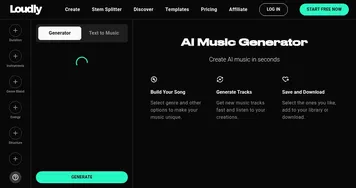 Loudly AI Music Generator
An online tool that makes it easy to create and customize high-quality music
Loudly AI Music Generator
An online tool that makes it easy to create and customize high-quality music
-
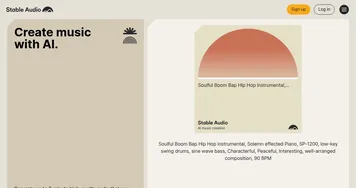 Stable Audio
An AI tool that produces high-quality music and sound using audio diffusion technology
Stable Audio
An AI tool that produces high-quality music and sound using audio diffusion technology
-
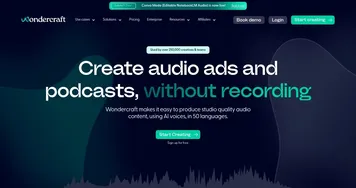 Wondercraft
Turn existing content into captivating podcasts, effortlessly
Wondercraft
Turn existing content into captivating podcasts, effortlessly
-
 Papercup
Translate videos by generating voices that sound like the original speaker
Papercup
Translate videos by generating voices that sound like the original speaker
-
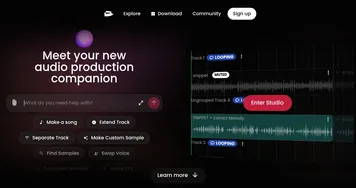 TwoShot
Turn ideas into music using AI-powered sampling and remixing tools
TwoShot
Turn ideas into music using AI-powered sampling and remixing tools


